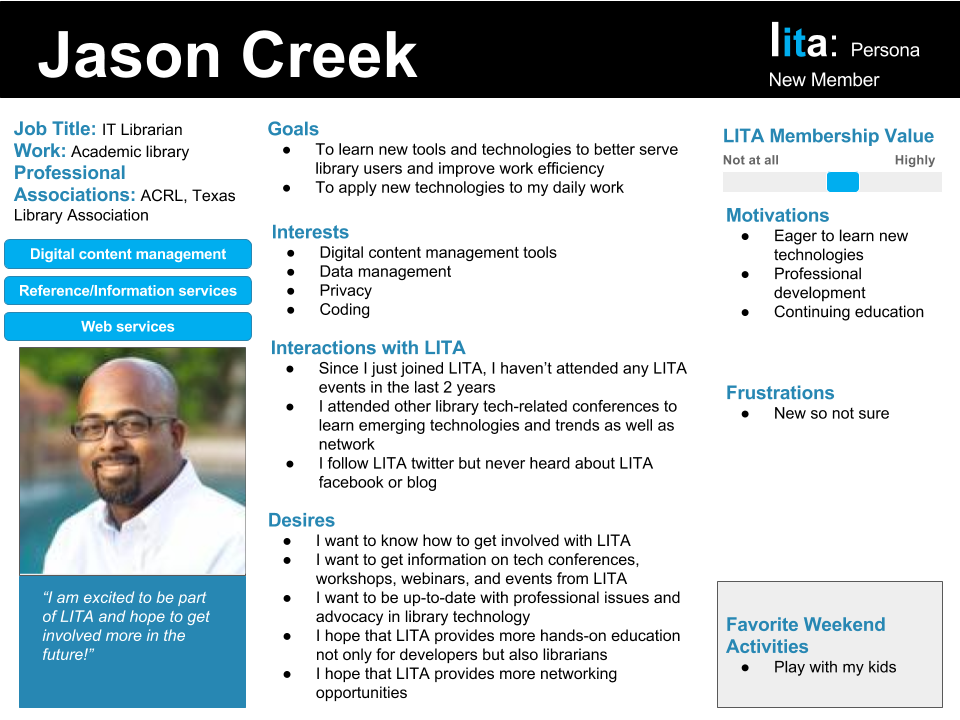LITA Persona Task Force The Persona Task Force was appointed by LITA (Library and Information Technology Association) Board in January 2016 to better capture the varied interests, needs, and expectations of the current, future, and past LITA members. These personas were developed as a tool that will help LITA create and refine tangible benefits and actionable strategies that directly address those interests, needs, and expectations. Personas Based on data analysis from existing data and user research (see below in the Data Collection section), the Task Force came up with 9 personas. 1. New Member: Jason Creek 2. LITA Involvement Member: Rachel Stein 3. Admin-Level Member: Jennifer Torre 4. Techie Librarian: Amy Chuck 5. Librarian: Michael Zhang 6. Non member – Previous Member: Andrew Young 7. Non Member – LITA Events Participant: Steve Gonzalez 8. Non Member – Online Follower: Rebecca Miller 9….
Who are LITA members? LITA Personas
